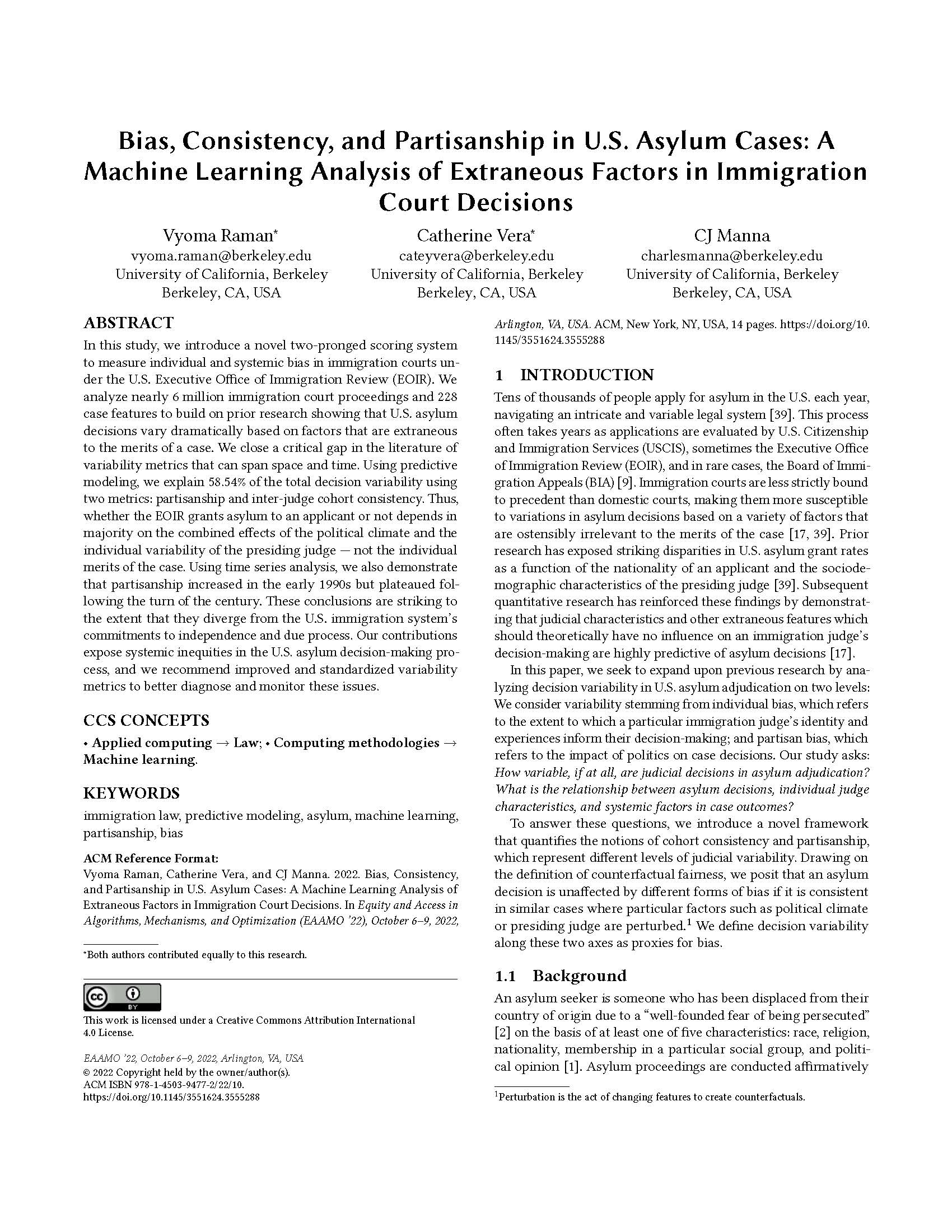Bias, Consistency, and Partisanship in U.S. Asylum Cases: A Machine Learning Analysis of Extraneous Factors in Immigration Court Decisions
Download PDFSummary
Abstract: In this study, we introduce a novel two-pronged scoring system to measure individual and systemic bias in immigration courts under the U.S. Executive Office of Immigration Review (EOIR). We analyze nearly 6 million immigration court proceedings and 228 case features to build on prior research showing that U.S. asylum decisions vary dramatically based on factors that are extraneous to the merits of a case. We close a critical gap in the literature of variability metrics that can span space and time. Using predictive modeling, we explain 58.54% of the total decision variability using two metrics: partisanship and inter-judge cohort consistency. Thus, whether the EOIR grants asylum to an applicant or not depends in majority on the combined effects of the political climate and the individual variability of the presiding judge — not the individual merits of the case. Using time series analysis, we also demonstrate that partisanship increased in the early 1990s but plateaued following the turn of the century. These conclusions are striking to the extent that they diverge from the U.S. immigration system’s commitments to independence and due process. Our contributions expose systemic inequities in the U.S. asylum decision-making process, and we recommend improved and standardized variability metrics to better diagnose and monitor these issues.


